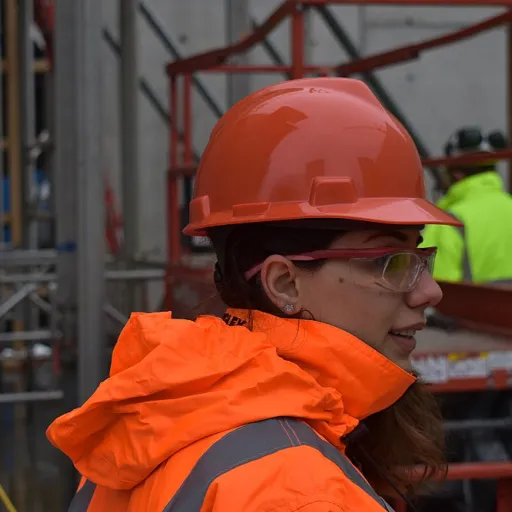
Understanding the local employment landscape
Key Features of Dover’s Employment Environment
The city of Dover, Delaware, offers a diverse employment landscape shaped by its municipal structure and public services. With departments such as emergency management, fire department, public works, tax assessment, and parks recreation, Dover provides a wide range of job titles and opportunities for both full time and part time roles. These positions are crucial for the city’s daily operations, from code enforcement and city planning to finance and recreation services.
Departments and Services Driving Local Employment
Municipal employment in Dover spans several core departments. The city manager’s office, human resources, clerk, and development services are central to city management and public administration. The fire department and emergency management teams play vital roles in public safety, while the public library and recreation services contribute to community development. Each department has its own set of frequently asked questions and contact points, making it important for job seekers to understand the structure and function of each unit.
Public Sector Opportunities and Application Process
Those interested in Dover employment can explore openings through the city’s official resources. The employment application process is designed to be transparent, with clear information on job titles, titles rates, and department responsibilities. Whether you are considering a role in finance, planning, or public works, understanding the expectations and requirements for each department is essential.
Community Impact and Workforce Development
Downtown Dover and its surrounding neighborhoods benefit from the city’s commitment to workforce development. Public sector roles not only support essential services but also foster community engagement and growth. The city’s focus on parks recreation, code enforcement, and tax assessment reflects a broader strategy to enhance quality of life for residents and employees alike.
For those seeking to deepen their understanding of how workplace experience can influence employee engagement and satisfaction in municipal settings, consider reading about the role of a workplace experience manager in public sector organizations.
Recruitment strategies for public sector roles
Attracting Talent for Essential City Roles
Recruiting for public sector positions in the city of Dover, Delaware, involves unique considerations. The city’s departments—ranging from emergency management and fire to tax assessment, public works, and parks recreation—require a diverse set of skills and backgrounds. Each department, whether it’s the finance office, planning and development, or the public library, must ensure its recruitment strategies align with both municipal needs and community expectations.Key Steps in the Recruitment Process
- Clear Job Titles and Descriptions: Accurate job titles and detailed descriptions help candidates understand the responsibilities and expectations. For example, roles in code enforcement, recreation, or the fire department should outline required certifications and experience.
- Transparent Application Process: The city dover employment application is typically available online, making it accessible for those seeking full time or part time opportunities. Frequently asked questions are addressed on the city’s official website, helping applicants navigate the process.
- Department Collaboration: Human resources works closely with each department—whether it’s public works, emergency services, or downtown dover development—to identify staffing needs and prioritize critical roles.
- Community Outreach: The city leverages local events, the public library, and recreation centers to connect with potential candidates. This approach helps reach a broader audience, including those interested in municipal services or public sector careers.
- Digital Tools for Engagement: Platforms like the Apollo Portal support streamlined communication between applicants and HR, enhancing employee engagement from the first point of contact. Learn more about enhancing employee engagement through the Apollo Portal.
Challenges in Public Sector Recruitment
Recruitment in the public sector is not without its challenges. Attracting qualified candidates for specialized roles—such as emergency management, fire department, or tax assessment—can be difficult due to competition with private sector salaries or the need for specific certifications. Additionally, the city must ensure its hiring practices are inclusive and transparent, reflecting Dover’s commitment to diversity and equal opportunity.Continuous Improvement and Feedback
Regularly updating job postings, seeking feedback from department managers, and monitoring frequently asked questions allows the human resources team to refine their strategies. This ongoing process ensures that the city of Dover remains competitive and responsive to the evolving needs of both the workforce and the community.Navigating internal communication challenges
Breaking Down Communication Barriers Across Departments
Effective internal communication is a cornerstone for the City of Dover’s public sector roles. With departments such as emergency management, fire, tax assessment, public works, recreation, planning, and finance, the complexity of information flow can be a real challenge. Each department—whether it’s the fire department, code enforcement, or parks recreation—has unique needs and priorities. This diversity can sometimes lead to information silos, making it harder for employees to access the resources or contact the right department at the right time.Common Challenges in Municipal Communication
- Information Overload: Employees often receive updates from multiple sources, including the city manager, human resources, and municipal clerk. This can make it difficult to identify urgent messages, especially during emergency situations or when dealing with frequently asked questions about city dover employment.
- Inconsistent Messaging: Departments like development, public library, and finance may interpret city policies differently, leading to confusion about job titles, titles rates, or employment application procedures.
- Technology Gaps: Not all staff have equal access to digital tools, especially in roles that are not full time or are field-based, such as public works or parks recreation. This can hinder timely communication and access to essential resources.
Strategies for Improving Internal Communication
To address these challenges, the City of Dover is adopting several best practices:- Centralized Communication Platforms: Implementing a unified system for internal updates helps ensure that all employees—from emergency management to the public library—receive consistent information.
- Regular Interdepartmental Meetings: Scheduled sessions between departments like planning, finance, and code enforcement foster collaboration and clarify responsibilities.
- Clear Points of Contact: Designating specific contacts within each department makes it easier for staff to resolve issues or get answers to frequently asked questions about dover employment or municipal services.
- Training and Support: Providing ongoing training on communication tools and protocols ensures that all employees, regardless of job titles or department, can participate effectively.
Building a Culture of Transparency and Trust
Open communication is not just about sharing information—it’s about building trust across the city’s workforce. When employees in departments like fire, tax, and development feel informed and valued, they are more likely to stay engaged and contribute to the city’s goals. This is especially important in a dynamic environment like downtown Dover, where public services must adapt quickly to community needs. By prioritizing clear, consistent, and accessible communication, the City of Dover can better support its employees and deliver quality services to residents.Promoting diversity and inclusion in city employment
Building an Inclusive Workforce in Dover’s Public Sector
Promoting diversity and inclusion within the city of Dover’s employment landscape is more than a compliance requirement—it’s a strategic priority. The city’s departments, from emergency management to public works, serve a diverse community. Reflecting this diversity in the workforce helps ensure that services are accessible and responsive to all residents. Dover’s human resources teams are tasked with reviewing employment applications for a wide range of job titles, including full time roles in fire, tax assessment, code enforcement, parks recreation, and municipal management. Each department, whether it’s the public library, finance, or planning and development, benefits from a workforce that mirrors the city’s population.- Outreach and Recruitment: The city uses targeted outreach to connect with underrepresented groups, ensuring that job postings for positions like city manager, recreation coordinator, or clerk reach a broad audience. This includes sharing opportunities in downtown Dover and through community organizations.
- Inclusive Hiring Practices: Human resources regularly reviews frequently asked questions and updates employment application processes to remove barriers. This includes clear job titles and transparent titles rates, making it easier for all candidates to understand requirements.
- Training and Development: Departments such as fire, emergency management, and public works offer ongoing training on cultural competency and anti-discrimination. These efforts help foster a respectful environment for both staff and the public.
Addressing Challenges and Measuring Progress
Despite these efforts, challenges remain. Some departments, like code enforcement or finance, may struggle to attract diverse candidates due to specialized requirements or limited awareness of opportunities. The city’s human resources department tracks progress by analyzing workforce data and seeking feedback from employees across all departments, including parks recreation and the fire department. To support continuous improvement, Dover’s management encourages open communication and regularly reviews policies to ensure they align with best practices in diversity and inclusion. By prioritizing these values, the city aims to create a welcoming environment for all employees and residents, strengthening public trust and service delivery.Employee engagement and retention efforts
Fostering a Supportive Workplace Culture
Employee engagement and retention are central to the success of any city department, whether in public works, emergency management, or parks and recreation. In Dover, Delaware, the human resources team recognizes that a positive workplace culture is built on trust, transparency, and recognition. Regular feedback sessions, open-door policies with the city manager, and clear communication channels help employees feel valued and heard. Departments like fire, finance, and code enforcement benefit from these practices, which can reduce turnover and improve morale.Tools and Initiatives for Engagement
The city of Dover employs a variety of tools to keep employees connected and motivated. These include:- Annual employee surveys to gather feedback on job satisfaction and workplace needs
- Recognition programs for outstanding service in departments such as public library, tax assessment, and downtown Dover development
- Professional development opportunities, including training for full time and part time staff in areas like emergency services and planning
- Flexible scheduling and wellness initiatives to support work-life balance, especially in demanding roles like fire department and emergency management
Addressing Retention Challenges
Retention in municipal employment can be challenging due to the variety of job titles and department needs. The city’s human resources department regularly reviews titles, rates, and benefits to stay competitive. They also maintain a frequently asked questions resource to help employees navigate benefits, employment application processes, and internal transfers. Open communication about career development and advancement opportunities in departments such as recreation, clerk, and public services is key to keeping talent within the city.Collaboration Across Departments
Effective engagement strategies require collaboration between human resources, department heads, and city management. Regular cross-department meetings ensure that best practices are shared and that all staff, from code enforcement to planning, feel included in the city’s mission. This collaborative approach also supports diversity and inclusion efforts, making Dover a more attractive place for public sector employment.Measuring Success
The city tracks engagement and retention through metrics such as turnover rates, internal mobility, and employee satisfaction scores. These insights help human resources and management refine their strategies, ensuring that Dover remains a supportive and rewarding place to work for all city employees.Adapting to change and future trends in HR communication
Embracing Digital Tools and Flexible Communication
Human resources communication in the City of Dover is evolving rapidly, driven by technology and changing workforce expectations. Departments like public works, emergency management, and recreation are adopting digital platforms to streamline contact with employees and applicants. The shift to online employment applications and digital resources helps the city reach a wider talent pool, making it easier for candidates to explore job titles, rates, and frequently asked questions about Dover employment.
Responding to Workforce Expectations
Full-time and part-time staff in municipal services, from the fire department to tax assessment, increasingly expect transparent and timely updates. HR teams are challenged to provide clear information about benefits, development opportunities, and department changes. This is especially important for roles in emergency services, code enforcement, and public library management, where communication can impact both employee satisfaction and public safety.
Building Resilience Through Change Management
Adapting to change means more than just adopting new tools. It requires a culture of open communication and ongoing training. The City Manager and human resources department are focusing on regular feedback loops, ensuring employees in planning, finance, and parks recreation are informed and engaged during transitions. This approach helps retain talent and supports the city's development goals.
Preparing for Future Trends
- Data-driven decision making: HR teams are leveraging analytics to monitor engagement and retention, helping departments like downtown Dover development and public services make informed choices.
- Mobile-first communication: With more staff working remotely or in the field, mobile platforms are essential for quick updates and emergency alerts.
- Continuous learning: Training on new systems and communication protocols is becoming a standard part of onboarding for all job titles.
As Dover continues to grow, the ability to adapt HR communication strategies will be key to supporting city employees and delivering quality public services.












